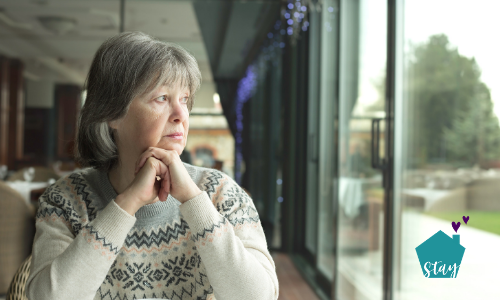Dementia: The Reality
When someone is diagnosed with dementia, people might assume that life will stop for that individual. However, dementia is a chronic condition that can be managed based on its stage and our own understanding of the disease.
Confusion is likely to increase as dementia progresses. Those living with dementia begin to rely on what is most familiar to them in an effort to feel safe. Confusion can trigger a number of psychological distress responses in someone with dementia.
Many times, those with dementia look to their primary caregiver to help make sense of the world around them and provide guidance. When that primary caregiver is not in sight, a person with dementia may feel lost, anxious and scared. Separation anxiety may be magnified in cases such as these.
What is separation anxiety for those living with dementia?
According to the advocate.com,
Reluctance and fear from being separated from a primary caregiver, or separation anxiety, is a normal, healthy response and occurs regularly in those with dementia.
This may mean that the person with dementia may “shadow” their primary caregiver and follow them around from room to room. This may provide a feeling of security for the demented, as they look to their primary caregiver for reassurance. Without the primary caregiver in site, the demented may become agitated, angry, cry or repeat themselves.
It is very important to remember that there are things that we can do to help manage the feelings/responses that come as a result of dementia and give the caregiver respite.
As the caregiver, we can respond/address separation anxiety in the following ways (again from advocate.com):
- As with anyone feeling anxious or presenting with anxiety, stay calm, soothe and validate their feelings. When appropriate, refocus them on something they enjoy.
- Pay attention to routine. More structure in the day means less chance anxiety will rise. Find activities that are soothing and repetitive to keep your loved ones mind engaged. An example might be folding clothes while you cook dinner.
- Include other trusted people to help with scheduled activities in an effort to build trust. Over time, the person with dementia will learn to rely on the other trusted person as well and may feel less anxious when the primary caregiver has to step away.
Caring for someone with dementia is a journey. It has its peaks and valleys, but the more information we have about the disease, the more prepared we can be as a caregiver.








